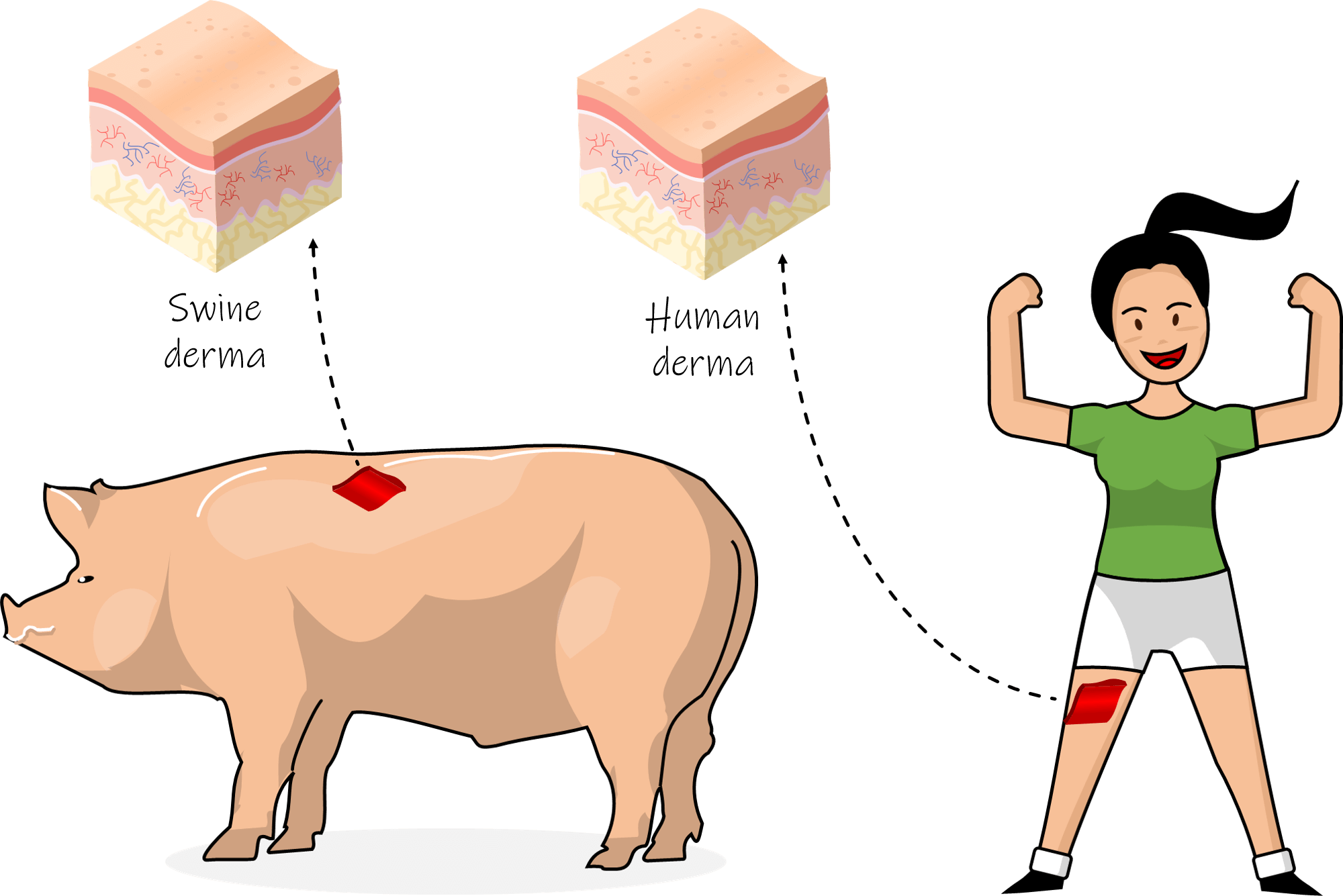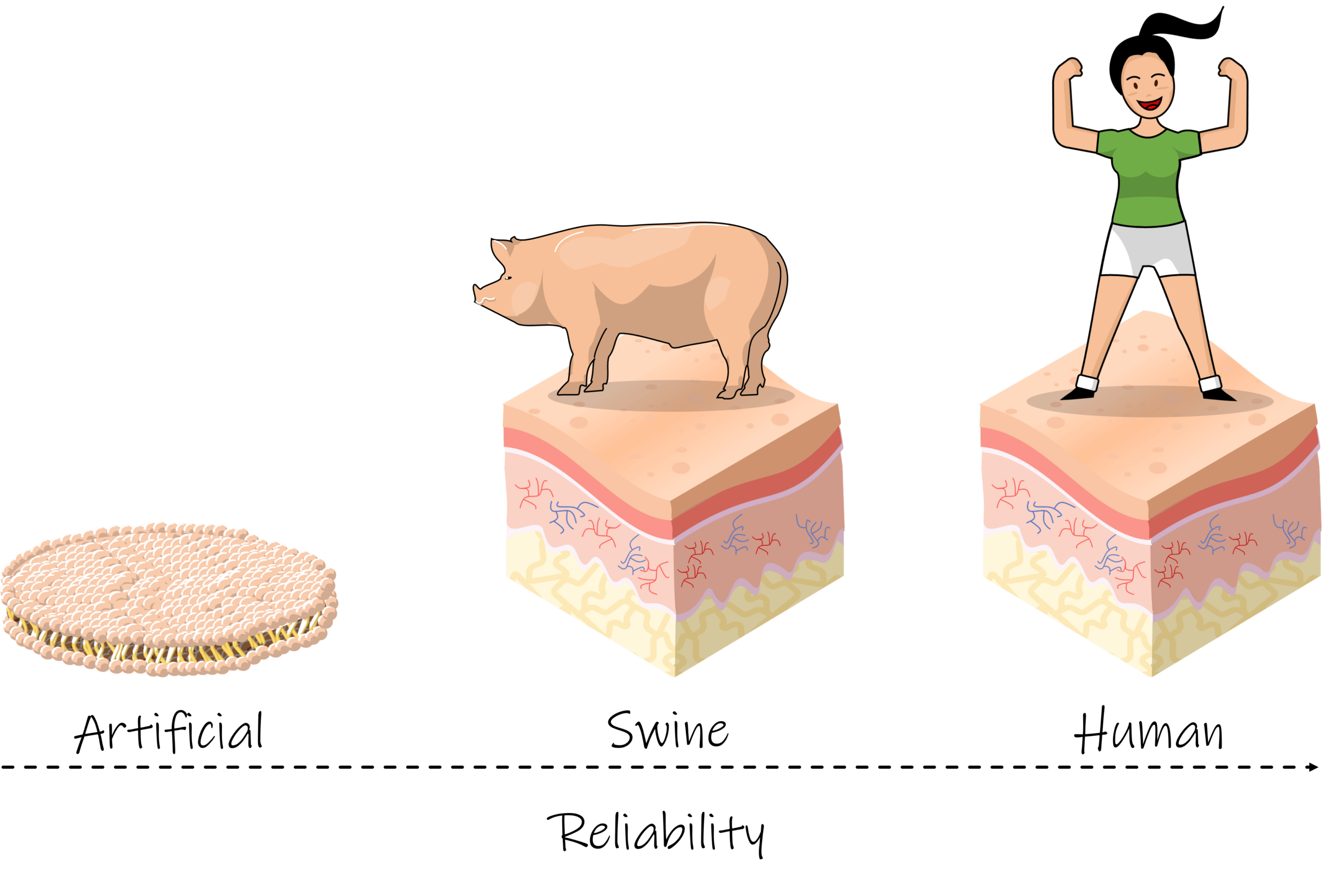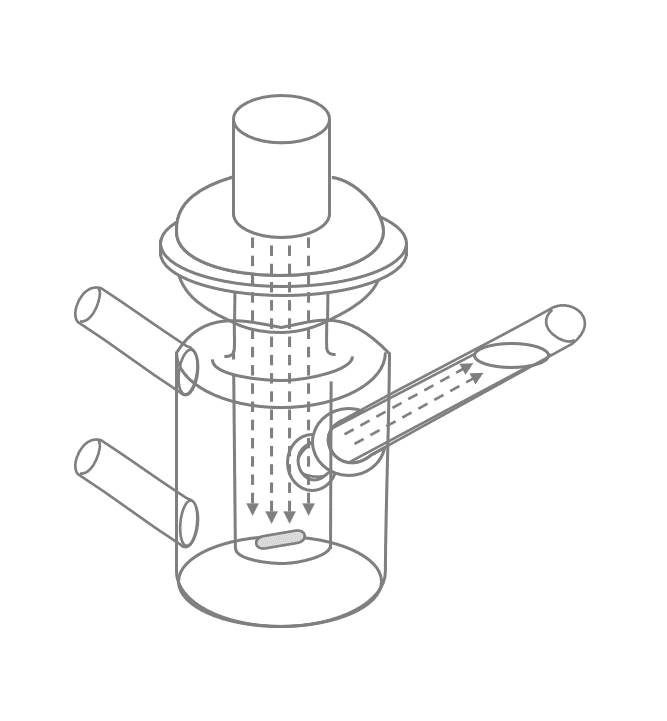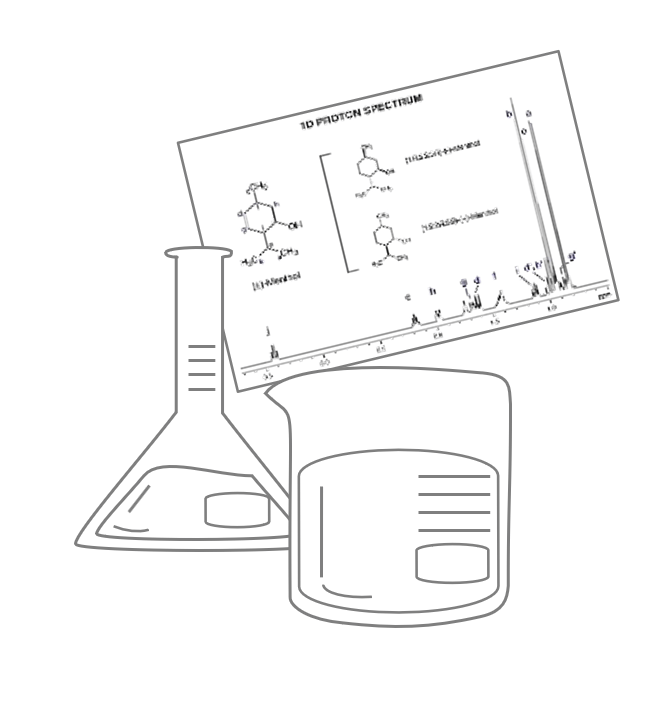Non è facile recuperare ritardi e difetti di progettazione.
Focus studi sulla permeazione:
tipi di membrane
e raggiungi più velocemente i tuoi clienti con nuovi prodotti.
Approfondimenti Sugli Studi di Assorbimento e Permeazione
Siamo esperti in test di assorbimento in vitro per dispositivi medici secondo EU 745/2017 e integratori secondo ICH Q2 (R1) e OCSE n. 428.
Progettiamo la micronizzazione dei vostri integratori con spray dryer per farne dei prodotti ad alta biodisponibilità. Ne testiamo l’efficacia con studi di preclinici come studi di permeazione con membrane ex vivo.
Gli studi di permeazione chiariscono in che modo le forme farmaceutiche interagiscono con le membrane biologiche ovvero come i suoi componenti si diffondono o vengono bloccati dalle membrane. In questo articolo, esploriamo i vari tipi di membrane utilizzate negli studi di permeazione, le loro caratteristiche, applicazioni e implicazioni. In particolare verranno confrontate le membrane artificiali ed ex vivo e tra queste ultime tra le suine e le umane.
Membrane Ex Vivo Vs Artificiali
Le membrane ex vivo sono derivate da tessuti biologici e quando correttamente conservate, mantengono le caratteristiche fondamentali della loro struttura morfologica. Le membrane ex vivo colmano il divario tra gli studi in vitro e in vivo, fornendo condizioni molto simili ai sistemi fisiologici, fornendo risultati autorevoli riguardanti l’efficacia e la tossicologia delle sostanze. Al contrario delle ex vivo, le membrane sintetiche sono prodotte industriali, progettati per imitare le proprietà e il comportamento delle membrane naturali, attraverso il controllo di alcune caratteristiche strutturali come: dimensione dei pori, carica superficiale e permeabilità.

Suina Vs Membrane Umane
Gli studi di permeazione con membrane suine sono ampiamente considerati come l’alternativa di scelta agli stessi esperimenti con tessuti umani. Ciò che li rende così simili è la somiglianza morfologica. Le membrane suine offrono un'alternativa conveniente e accessibile capace di fornire dati autorevoli prima di passare agli studi clinici.
Le membrane umane sono i modelli più rilevanti e autorevoli per gli studi di permeazione consentendo una correlazione diretta tra composizione della formulazione, dose di composto attivo ed effetto.

Considerazioni
Gli studi sulla permeazione valutano la capacità di una formulazione di promuovere o inibire la permeazione dei suoi componenti delle membrane biologiche con cui vengono a contatto. Le principali applicazioni sono di tipo regolatorio che di innovazione di prodotto. I dati proveniente da tali studi possono infatti sostenere la sottomissione dei fascicoli tecnici che l’ottimizzazione della formula durante gli studi formulativi. Mentre le membrane ex vivo forniscono una rappresentazione consistente delle condizioni in vivo, la loro reperibilità, costo e tendenza al deterioramento ne limitano l’utilizzo. Le membrane artificiali offrono maggiore controllo sui costi e reperimento, ma forniscono un modello più distante delle condizioni biologiche. Le membrane suine sono validi sostituti delle membrane umane, ma nell’elaborazione dei dati bisogna considerare le differenze specie-specifiche.

Conclusione
Gli studi di permeazione valutano l’eventuale permeazione o effetto barriera di una forma di dosaggio sui suoi componenti. Più aderente è il protocollo sperimentale alle reali condizioni fisiologiche, maggiore è l’autorevolezza dei dati. Pertanto, l’affidabilità cresce quando si passa dalle membrane artificiali a quelle ex vivo e dalle suine alle umane.
Siamo specializzati in spray drying su misura per integratori e nutraceutici. Con il nostro know how all’avanguardia ti aiuteremo a trasformare i tuoi prodotti classici in integratori micronizzati integratore micronizzato e micronizzazione altamente biodisponibili.
Technology Scientific è la PMI natata come
spin-off universitario
i nostri studi in vitro sono scelti dalle
migliori aziende e startups






Prezzi Studi Di Permeazione
Ogni studio comprende:
- Ricerca bibliografica, protocollo sperimentale.
- Progettazione, secondo linee guida OECD.
- Selezione cella di Franz, geometria cella.
- Selezione membrane, artificiali o ex vivo.
- Esecuzione test, e valutazione permeazione.
- Stesura del resoconto, e consegna.
Sviluppo
1 analita in 1 formulazione
€ 3000
Aggiornamento: in tempo reale
Supporto email: illimitato
Convalida
Consulenza mobile
Video analisi del resoconto
Consegna espressa
Il più richiesto
Valutazione
3 analiti in 1 formulazione
€ 5799
Aggiornamento: in tempo reale
Supporto email: illimitato
Validazione: secondo ICH
Consulenza mobile: 30 minuti
Video analisi del resoconto
Consegna espressa
Il più richiesto
Linea
6 analiti in 2 formulazioni
€ 8599
Aggiornamento: in tempo reale
Supporto email: illimitato
Validazione: secondo ICH
Consulenza mobile: 30 minuti
Video analisi del resoconto
Consegna espressa
Il più richiesto
Espresso
7
Giorni
Lavorativi
1 analita in 1 formulazione
1 analita in 1 formulazione
€ 7199
Aggiornamento: in tempo reale
Supporto email: illimitato
Validazione: secondo ICH
Consulenza mobile: 30 minuti
Video analisi del resoconto
Consegna espressa
Il più richiesto
Sviluppo
1 analita in 1 formulazione
€ 3000
Aggiornamento: in tempo reale
Supporto email: illimitato
Convalida
Consulenza mobile
Video analisi del resoconto
Consegna espressa
Il più richiesto
Valutazione
3 analiti in 1 formulazione
€ 5799
Aggiornamento: in tempo reale
Supporto email: illimitato
Validazione: secondo ICH
Consulenza mobile: 30 minuti
Video analisi del resoconto
Consegna espressa
Il più richiesto
Linea
6 analiti in 2 formulazioni
€ 8599
Aggiornamento: in tempo reale
Supporto email: illimitato
Validazione: secondo ICH
Consulenza mobile: 30 minuti
Video analisi del resoconto
Consegna espressa
Il più richiesto
Espresso
1 analita in 1 formulazione
7
Giorni
Lavorativi
€ 7199
Aggiornamento: in tempo reale
Supporto email: illimitato
Validazione: secondo ICH
Consulenza mobile: 30 minuti
Video analisi del resoconto
Consegna espressa
Il più richiesto
Sviluppo
1 analita in 1 formulazione
€ 3000
Aggiornamento: in tempo reale
Supporto email: illimitato
Convalida
Consulenza mobile
Video analisi del resoconto
Consegna espressa
Il più richiesto
Valutazione
3 analiti in 1 formulazione
€ 5799
Aggiornamento: in tempo reale
Supporto email: illimitato
Validazione: secondo ICH
Consulenza mobile: 30 minuti
Video analisi del resoconto
Consegna espressa
Il più richiesto
Linea
6 analiti in 2 formulazioni
€ 8599
Aggiornamento: in tempo reale
Supporto email: illimitato
Validation: according ICH
Consulenza mobile: 30 minuti
Video analisi del resoconto
Consegna espressa
Il più richiesto
Espresso
7
Giorni
Lavorativi
1 analita in 1 formulazione
€ 7199
Aggiornamento: in tempo reale
Supporto email: illimitato
Validazione: secondo ICH
Consulenza mobile: 30 minuti
Video analisi del resoconto
Consegna espressa
Il più richiesto
Rispondi al quiz qui sotto e scopri subito quale è lo studio di permeazione migliore per te
Qual è il tuo obiettivo principale per questo studio di permeazione?
Se stai sviluppando una nuova formula o vuoi iniziare una campagna di comunicazione basata su dati scientifici,
puoi risparmiare tempo e denaro con un protocollo più agile rispetto ad un dedicato alla stesura di un fasciolo tecnico.

Sviluppo nuovo prodotto
Sudi di permeazione su prototipi per la selezione della formula più efficace.

Stesura fascicolo tecnico
Dimostrare l'effetto di promozione o barriera alla permeazione per l'autorizzazione dell'ente notificato.

Comunicazione dell'efficacia
Aumenta la fiducia nel prodotto con dati di laboratorio.
Quanti analiti hai bisogno di testare?
Se hai un numero provvisorio di analiti da testare, sposta i cursori per individuare l'intervallo corrispondente.
Se conosci il numero esatto di analiti, sovrapponi entrambi i cursori sul numero corrispondente.

Qunate formulazioni hai bisogno di testare?
Se hai un numero provvisorio di formulazioni da testare, sposta i cursori per individuare l'intervallo corrispondente.
Se conosci il numero esatto di formulazioni, sovrapponi entrambi i cursori sul numero corrispondente.

Ricevi uno sconto del 10%
Compila il modulo per scoprire quale sia lo studio di permeazione più adatto a te,
ricevi i risultati nella tua casella di posta,
insieme a uno sconto del 10% sul tuo prossimo studio di permeazione.
Rispettiamo la tua privacy e non condivideremo il tuo indirizzo e-mail né ti invieremo email inutili.
No Result Found
Thank You for your feedback
We will reach back to you soon.
Your personal result
More results that suit you
Con gli studi di assorbimento di Technology Scientific

